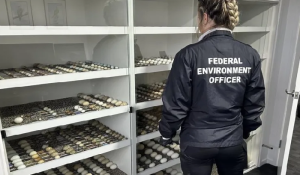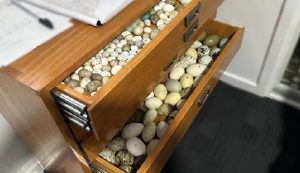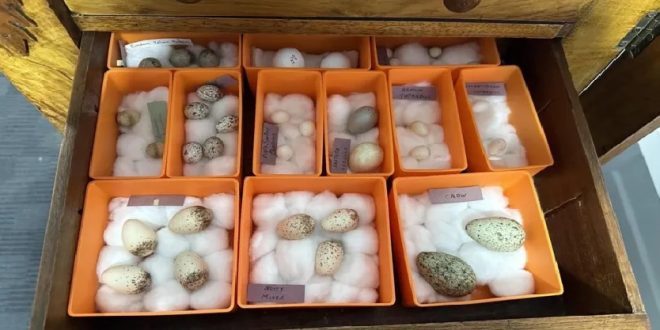20-07-2024
TASMANIA: A collection of 3,404 eggs have been seized in Australia after a European operation into the illegal bird trade.
Investigators discovered the haul believed to be worth $400,000 to $500,000 (£207,000-£259,000) at a property in Granton, Tasmania on 9 July.
 The eggs had been blown or hollowed out meaning they only had ornamental value.
The eggs had been blown or hollowed out meaning they only had ornamental value.
A 62-year-old man was being investigated but no arrests had been made, according to officials.
Environmental and wildlife crime has become one of the world’s largest and most profitable crime sectors and continues to grow as it pushes many species to the brink of extinction.
It is expected that the Australian suspect will appear in court at a later date for offences in contravention of the Environment Protection and Biodiversity Act 1999.
“(The man) is alleged to have been involved in the collection and harvesting of bird eggs from the wild and trading of both Australian native and CITES-listed bird eggs with people overseas,” a spokesperson from the federal Department of Climate Change, Energy, the Environment and Water (DCCEEW) said.
CITES-listed means a species is listed in the Convention on International Trade in Endangered Species of Wild Fauna and Flora (CITES), an international agreement between governments that aims to protect endangered plants and animals from international trade.
Analysis of the eggs is now underway to confirm what species they belong to, but they are believed to include rare and threatened species facing a high extinction risk.
Investigators believe they include eggs from the forty-spotted pardalote, which is found only on Tasmania’s Bruny Island, the swift parrot and the shy albatross.
The eggs in this collection were all blown or hollowed eggs, meaning the egg white and yolk had been removed.
 In 2023, European authorities launched an investigation in relation to the illegal harvesting, collecting, trading, buying and selling of bird eggs within Europe and internationally. A number of search warrants were undertaken resulting in the seizure of over 56,000 eggs.
In 2023, European authorities launched an investigation in relation to the illegal harvesting, collecting, trading, buying and selling of bird eggs within Europe and internationally. A number of search warrants were undertaken resulting in the seizure of over 56,000 eggs.
CITES estimates international wildlife trade is worth billions of dollars ranging from live animals, to products derived from them.
More than 40,000 species are covered by the agreement, with more than 180 countries agreeing, including Australia.
Tasmanian ecologist Dr Sally Bryant told media that egg collecting “was probably happening more than any of us realize”.
She said; “We are well aware of these sorts of activities, but they’re very, very outdated, they are morally, ethically, legally corrupt.”
Collections of this size were put together by “skilled operators” over “many years”, she added. The interference of threatened and migratory birds can carry a penalty of seven years imprisonment, a fine of $138,600 or both.
The export of Australian native specimens, including eggs, and the export or import of specimens, including eggs, on the CITES list has a maximum penalty of 10 years’ imprisonment, a fine $330,000, or both.
The possession of CITES-listed specimens, including eggs, can carry a penalty of five years imprisonment, a fine of $330,000 or both.
Tanya Plibersek, Minister for the Environment and Water, said: “Illegal trafficking and wildlife crime is fast becoming a threat for many of our species that are already at risk of extinction. (Int’l News Desk)
 Pressmediaofindia
Pressmediaofindia




